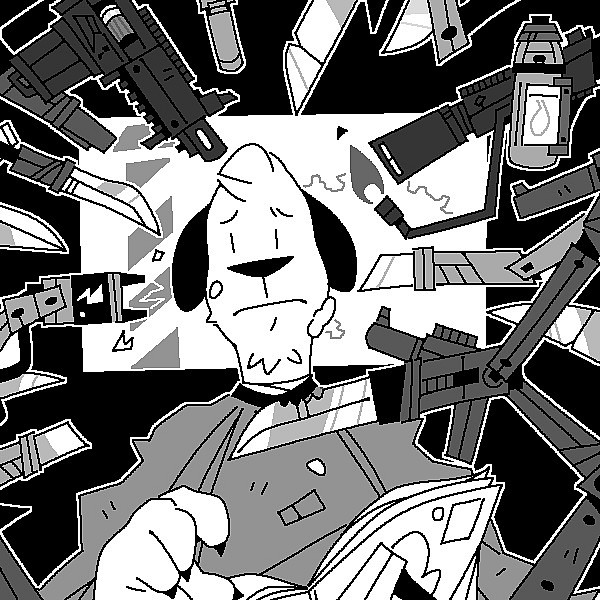Jordan Plange ’27

More Than a Haircut: The Importance of Inclusion in the Barbershop
As soon as I knew I was gay, at the age of 12, I understood that the barbershop would be a struggle for me. I had previously experienced all the toxic, testosterone-heavy conversations about women, sports, and most importantly, hate for the gays. From middle school all the way to my last haircut before leaving for college, I’ve had a dichotomous feeling towards going into the barbershop. I’m always super excited for my fresh cut, but I can’t say the same about spending time in the establishment. As I’m getting older and more comfortable with my sexuality, I’ve realized that the culture that exists in these shops is unacceptable and needs to be changed. I believe that barbershop owners need to make sure they are providing an actual safe space for anyone who steps foot into their establishment through addressing and annihilating any homophobia in the building and implementing procedures to make gay men more comfortable.
A couple of months ago I was getting my haircut before prom and I had my nails painted black. The barber questioned me multiple times on why I had painted my nails. His questioning didn’t seem to come from curiosity but rather judgment. I slowly hid my nails under the barber cape and sat uncomfortably for the rest of my haircut. My experience is one of many that gay men experience. In an interview on FOX 26, queer man Jordan Scott states that when there is “a reference to someone that is homosexual or whatever that they identify with, it is usually derogatory and homophobic.” I personally have heard people call others in the barbershop “fairies” or “fruitcakes.” It’s one of the most eerie situations to be in. An article in The Fader surrounding queer culture in the barbershop reports that when queer customer Jamilah King reflects on her experience in the barbershop, saying, “There was a vibe, and it wasn’t good. Client after client would be chosen ahead of me. Barbers suddenly lost their ability to make eye contact. Mostly, I was wracked by an all-encompassing self-doubt as I sat in awkward silence.” Microaggressions like these ultimately lead to more discomfort within the queer community. So much so, it’s to the point where we change how we express ourselves in public.
Code switching is something that I not only deal with as a queer person but as a black person too. I often have to alter how I would naturally express myself to avoid conflict. In the case of the barbershop, I portray a hypermasculine version of what I’m normally like. This shouldn’t be a precaution anyone has to take. Barbershop owners need to make it clear that they are implementing procedures to make sure their establishment is a safe haven for everyone. These actions are as simple as deescalating any homophobia spewed out by customers or employees. For a lot of barbershops, barbers rent a space in the barbershop to do their practice. Owners of these businesses can even communicate or make renters sign a contract on what is expected in regards to discrimination in the workspace. The Federal Civil Rights Act of 1964 states “that no business (public or private) serving the public can discriminate based on a customer’s national origin, sex, religion, color or race.” Laws like these are important to have, however they don’t enough. Oftentimes negative experiences in barbershops are due to small, slick, comments or microaggressions, that aren’t strong enough to be classified as legal issues. It’s even harder to call these microaggressions out when you’re in a space where most men would tell you, “You are being dramatic” or to “Toughen up.”
Some might argue that the barbershop doesn’t need to address inclusivity because sex-related conversations don’t belong in the barbershop at all, especially if they are shop-owners. In an interview, barbershop owner Kenny Waren states, “When we getting loud (in the barbershop), we getting loud about sports. Dudes ain’t standing up, getting loud, about some chick that they knocked off.” Straight men also say that having conversations regarding gay experiences makes them uncomfortable. Warren continues by saying they don’t want to hear about it because that’s “not [his] personal thing.” He even goes as far to say, “This is a barbershop, not a nail salon.”
I see this excuse as a front to continue to allow homophobia in the barbershop. The same barber said that the barbershop is a communal space where men can have conversations about “sexuality, religion, and politics” without a higher power trying to delegate what is talked about. I’m confused on how you can simultaneously want to have a space to have tough, open conversations about sexuality but don’t want to hear what gay men experience as well.
In conclusion, the stewards of the oft-considered transformative space of the barbershop need to evaluate how welcoming they are. It’s understandable that men want to have their own space to feel comfortable and talk without judgment. It’s just important that these spaces don’t discriminate against queer folk and include them into the communal conversations. This is so future queer kids like me don’t have another reason to hide who they are from the world.
Works Cited
“Is The Barbershop Safe For Gay Black Men? • Advice From A Barber.” YouTube, YouTube, 13 Dec. 2020, https://www.youtube.com/watch?v=Sqyevvnlmrw&t=282s. Accessed 23 Oct. 2023.
“The Barbershop Experience for Gay, Bisexual Men.” YouTube, YouTube, 30 June 2023, https://www.youtube.com/watch?v=GNLJnWtxobQ. Accessed 23 Oct. 2023.
King, Jamilah. “Camera Ready Kutz is Redifining Who Belongs in a Barbershop.” The Fader, https://web.s.ebscohost.com/ehost/pdfviewer/pdfviewer?vid=1&sid=553726d0-e785-40ff-84a1-8 2bde2e7e7b4%40redis. Accessed 22 Oct. 2023.